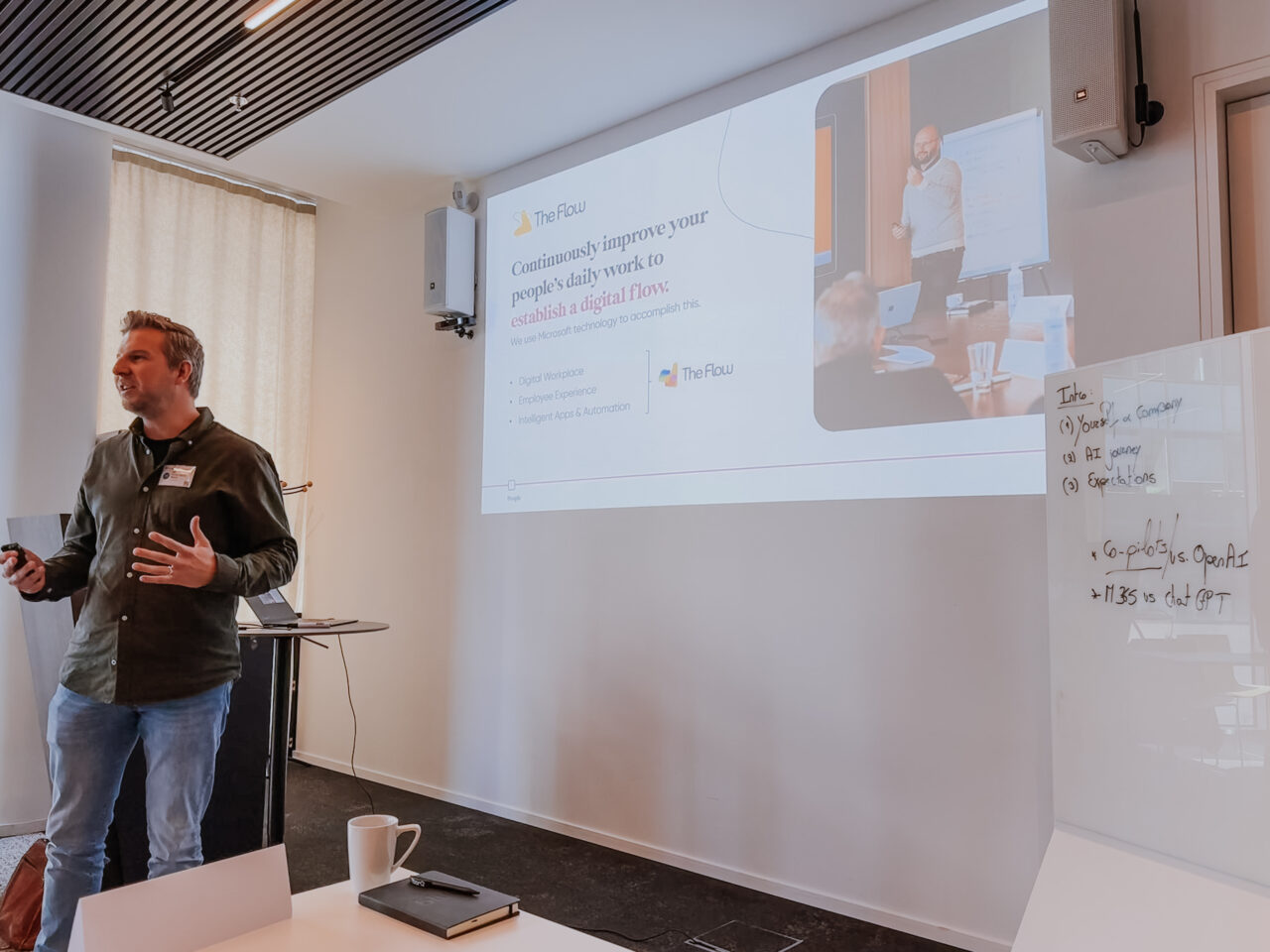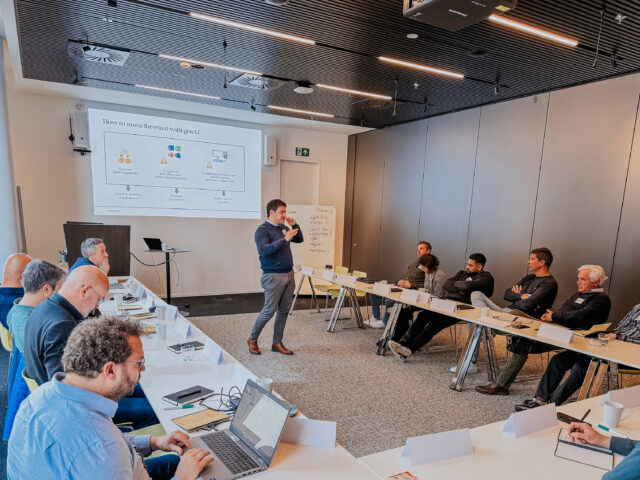Bluu got CIOs and business leaders from various industries together for a special roundtable called “Shaping the AI-driven Future of Work”. If you missed it, don’t worry – we’ll give you a quick recap of the highlights.
#1 Developing an AI strategy
Having a solid strategy is key when you’re bringing AI into your organization. To make the most of AI, you should align your AI projects with growth and innovation goals. This includes:

- Governance: Set up rules and best practices for AI ethics and data security, protecting sensitive information while maintaining transparency.
- People: Put together an awesome AI team with diverse backgrounds, encourage teamwork, and never stop learning and growing.
- Technical resources: Allocate budget for AI development, deployment, and maintenance. Consider data governance, security, and infrastructure requirements.
#2 Maximizing business value through an AI Center of Excellence
Many organizations struggle when it comes to driving organizational success with AI. Identifying high-impact projects, maintaining ethical practices, and maximizing returns on AI investments are daunting tasks.
During the engaging roundtable discussion, we addressed how an AI Center of Excellence can play a pivotal role in overcoming these challenges. In essence, a CoE helps you establish and enforce standardized practices and processes, and serves as an engine for developing skills and deploying solutions, and ultimately maximizing business value.
#3 Nurturing a culture of innovation
Building a culture of innovation covers a lot of ground. Here’s how to get started:
- Educate your team: Help everyone grasp AI technologies and their potential. Give them the tools to experiment and use AI in their daily work.
- Encourage idea generation: Set up spaces, like innovation labs or dedicated teams, where people can focus on creating and testing new AI-powered applications.
- Provide safe platforms for experimentation: Let employees try AI applications without worrying about messing up operational systems. This cultivates a trial-and-error mindset.
- Embrace an iterative approach: Build, test, and improve AI projects based on feedback. This helps tailor innovations to better suit your company’s needs.
- Celebrate innovation: Recognize and reward AI project efforts and wins to keep employees engaged and motivated to learn new skills.
#4 Keeping the human in the loop
While AI’s potential for improving operational efficiency is unquestionable, we should always keep humans in the loop. Mixing human know-how with automation helps strike the perfect balance between efficiency and responsibility, giving us the best of both worlds.
In a nutshell, involving people in AI processes makes these operations more dependable and trustworthy. After all, we humans still have a vital role to play in the AI-driven future of work!
#5 Exploring and implementing ethical AI Practices
To ensure transparency and accountability in all your AI endeavors, prioritizing ethical practices is key. Here’s how to go about it:
- Train AI models with unbiased data: This prevents discrimination and unfair results. After all, you want AI to be fair and impartial, right?
- Keep a watchful eye on AI models: Regularly check for biases and inconsistencies that might emerge over time. Staying on top of this helps maintain ethical standards.
- Include diverse teams in AI development and deployment: Involve people from different backgrounds and perspectives to reduce ethical risks. Diversity can help cover any blind spots!
By integrating these practices into your organization’s AI initiatives, you can promote a culture of responsible AI development and deployment.
#6 Achieving higher levels of efficiency, automation, and productivity
During our lively roundtable discussion, we highlighted how AI can really boost operational efficiency and productivity in several ways.
For starters, AI streamlines processes by automating repetitive tasks and eliminating bottlenecks, making workflows run more smoothly. It also expedites decision-making by quickly analyzing vast amounts of data, helping you to make better-informed choices in less time.
Additionally, AI reduces manual labor, freeing teams from repetitive tasks and allowing them to focus on strategic initiatives and creative problem-solving.
Wondering how to implement AI in your organization? Our team is more than happy to help you guide through each critical adoption phase. Get in touch with Astrid Taminau!
